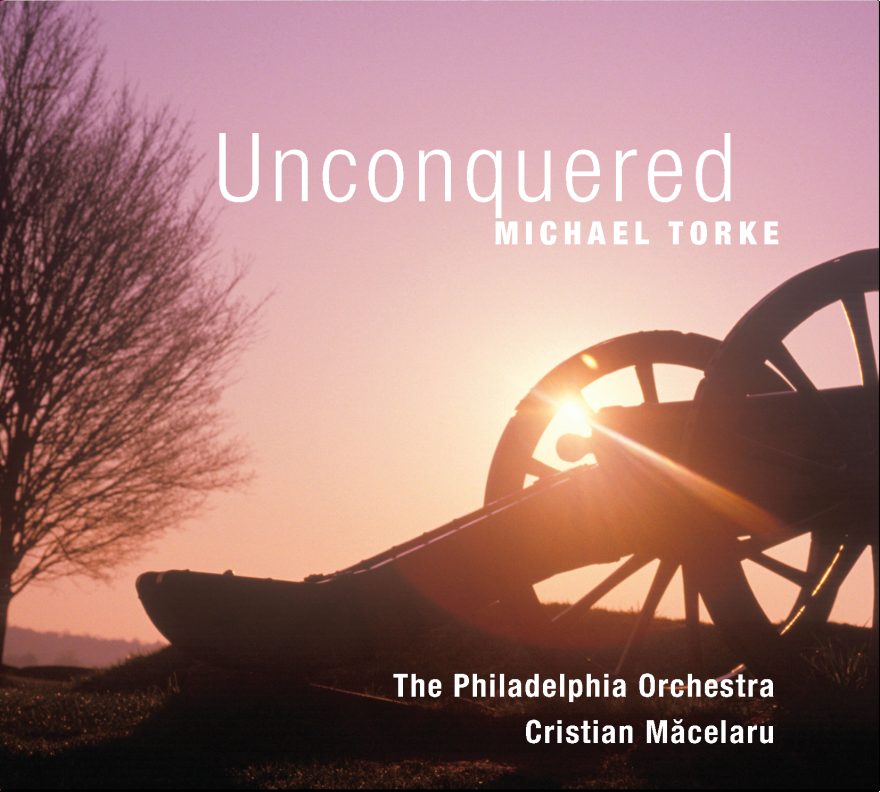Composer Michael Torke’s new symphonic work, “Unconquered,” is a rousing, bright celebration of the American spirit, a worthy successor to the popular patriotic salutes of Morton Gould. And yet it does not fall into the typical trappings of Red, White & Blue melodies.
Torke’s piece is based in part on the fall, 1777 Saratoga campaign, a turning point in the Revolutionary War. After the Battles of Saratoga, the French allied themselves with the colonists, sensing momentum on the American side. Torke opens his symphony with a movement called “Summon,” which takes a brass fanfare and trades the melody to the strings and winds. The phrases begin to overlap, and I’m reminded of another work by Torke, “December,” which gives the aural illusion of snow and sleet falling through a similar device. Here, the patterns work together as if a great gathering of forces was being assembled.
The second movement, “Dawn,” is the sound of a new day; “Advance” is bright even in its depiction of bravery amidst the chaos of battle, and finally the work ends with “Liberty,” a piece defined not by the clanging of bells, but by swelling brass, as if there has been a great awakening. Altogether, the piece runs about 25 minutes.
In his liner essay accompanying the EP release, composer Michael Torke writes:
“To write a piece of music inspired by the ideals of the Revolutionary War would be seen as a natural response in the 19th century, but a dubious one in the 21st. Nevertheless, doing so is hardly a political act. For me, it comes from a love of history and a regard for the aspirational. It is not inherently xenophobic or chauvinistic to feel pride in a country established on principles that value life, liberty, and the pursuit of happiness—a nation where, if an artist wants to express something, he is not hindered.”
That Torke even felt the need to include such a statement is telling of the times we live in. But elsewhere in the same essay, he makes an important point; there is a difference between pride and ethnocentrism. This music makes me feel the former. Listening to “Unconquered” brings to mind images of our beginnings as a nation, and the dreams of a more perfect union for which we continue to strive toward, nearly 250 years later.






